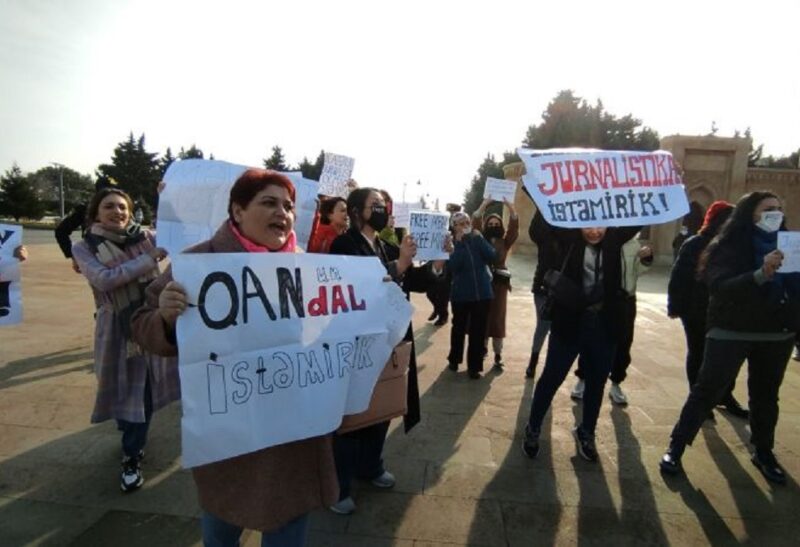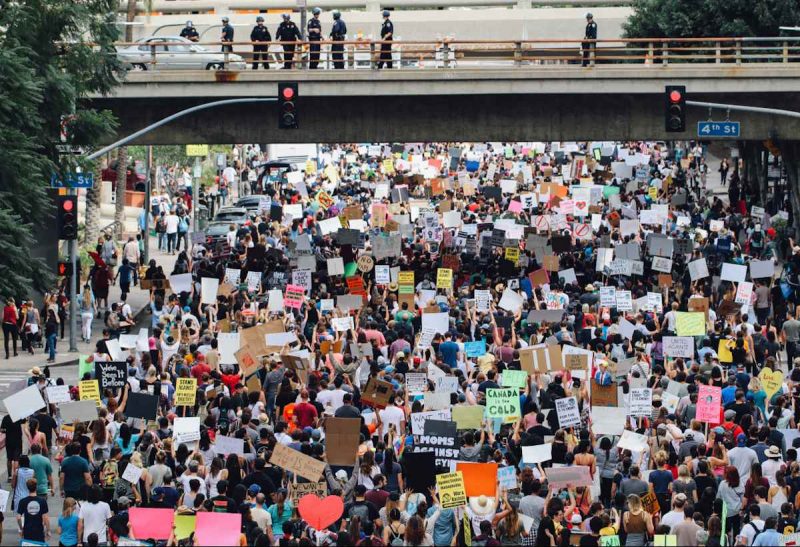

It was an environmental outcry turn countrywide demonstration. Hundreds of thousands of Turks raised their voices against the ruling government’s patronizing and increasingly more conservative polices. The whole country was shaken. The Gezi Park protest showed the side of Turkey many thought was long forgotten – civil popular dissent, unity, and solidarity. For the first time in years in a country of some seventy million, people rose against their government and its gripping authority of the ruling Justice and Development party (Adalet ve Kalkinma Partisi) and its leader, the Prime Minister Recep Tayyip Erdogan.
From the very start AKP misread what triggered the country – wide non-violent demonstrations. Everyone but the government was responsible for the unrest. No one recognized on behalf of the government that it were the series of critical policies adopted in the past by the ruling Justice and Development Party that triggered popular dissent. No one but Erdogan himself spoke of a minimum number of children, C-section and abortion bans, prohibiting alcohol, raising religious generation and even a brief stunt in 2004 to criminalize adultery to name a few. But it was still the third powers and conspiracy theories turning the country upside down.
For Erodgan it was hard to understand, the present Turkey was no longer the Turkey of 2002 – it grew, it prospered, and matured. It was the failure of Erdogan’s government to pursue an agenda shaped by an ideology – the religious victimhood – and the beliefs of his conservative support base while totally disregarding the concerns of those who shared different lifestyles of a new, developing and rapidly changing Turkey. As a result a crack was coming, it just wasn’t clear how and when.
Gezi protests: religious storm in the making?
It all began with few environmentalists’ attempt to prevent bulldozers from entering a small park in the heart of Istanbul near Taksim Square on May 27
th
, 2013. The Prime Minister, Erdogan envisaged a new development plan for the park- a new shopping center, with cultural centers, opera house, a mosque, Ottoman- era military barracks, and the historic Ataturk Culture Center demolished. The plan was not open to public discussion or a vote.
When the popular unrest escalated (given the heavy handed tactics of police who used tear gas and water cannon to disperse peaceful protesters and burned their tents) on May 31st, Turkey’s Prime Minister could have prevented the approaching storm. Instead he chose to press with the development plans. He refused to accept the debt of the events and left the country for a three- day trip to North Africa. Following his return it was clear his government wont budge from its earlier stand.
Shortly after came the religion card. It was a (mis)calculation on behalf of Erdogan’s government to rely heavily on religion and discredit the protesters based on their spiritual affiliation (or lack thereof). Little did he know that Turkey was made up of more than just his staunch supporters (of which he said later he could hardly keep at home as the protests spread across the country) and simply anti- government hoodlums preventing the ruling party from implementing their plans for Taksim.
It was no other but Erdogan himself together with the members of the ruling party who turned the protests from its early days into a war of ideologies- “war between devout Muslims and villains” even though in a real world, this was not the case. Ironically, only a little over a decade ago, the then candidate Erdogan promised a Turkey with non-ideological approach to politics, responsiveness to demands of the people, change, development, liberty and democracy. In the initial years of leadership, Erdogan took steps to even distance himself and his party from the country’s earlier Islamist parties that were anti- west. In fact he was viewed as a “Nixon-in-China, a man who understood the need for Turkey’s closer integration to Europe and the global economy because of and not despite his political initiation in an openly Islamic political movement. He promised to rewrite Turkey’s international role […] The new Turkey would not simply be a bulwark but an agent of change- as a beacon of sound governance, a powerhouse economy, and a reservoir of good diplomatic sense.”
Sadly this direction no longer holds its value. Especially following the second re-election PM Erdogan and the AKP are shifting further apart from the original rhetoric of a new Turkey. Turkey today no longer is united or at least not for the time being. For the ruling Justice and Development Party Turkey consists of the 50% who voted for Erdogan in the last elections in 2011, and the rest of the country. As for Erdogan himself, many see him and his party more as “xenophobic, anti- Western, inward-looking, anti-globalization and pro-status quo” than what he once used to be.
The talk of a different Turkey
There was much hope vested in the new government of Turkey and its new charismatic Prime Minister, Recep Tayyip Erdogan in 2002. Erdogan, who as Istanbul’s mayor did much for the city’s development in the past – enhanced water supply, cleared slums, tackled the environment issue and even planted thousands of trees. It is ironic that the very same man today is ready to sacrifice green spaces for various construction projects. Somewhere along the way between being the mayor of Istanbul, then losing that position, a short time spent in jail for reciting a poem and him running for the seat of the Prime Minister, Mr. Erdogan changed. Or so he claimed. He realized that political liberalization was the way forward if we wanted to remain in power. He convinced the 51 parliament members of the banned various Islamists parties – the AKP predecessors to join the new party while embracing all of Turkey, from right, left, devout or not. Erdogan promised that he has changed. And his new party too sang a different tune. Gone were the days when there was anti-Western sentiments or talk of religious Turkey. A new party was in the house claiming no demands for a religion- based state, no Islamic association with Erdogan even once saying, “I am not an Islamist – I’m just an observant Muslim and that’s my own business.” Similarly the EU accession talks were also back on the agenda. Erdogan succeeded in convincing many, including the many of the secular-minded Turks that Turkey was about to change.
But darker clouds came creeping over- the shining beacon of hope was slowly overshadowed, this time by other emerging issues as the long- existing Kurdish and the Alevi rights, human rights and freedom of expression limitations, censored media, lack of freedom and on a much larger scale the AKP’s creeping Islamisation (introduction of Koran classes for primary-school pupils, revival of Islamic clerical training for middle schools) and growing conservatism.
Since its re-election in 2007, AKP successfully managed to fill many of the country’s decision-making institutions with AKP people including the judiciary, provincial governorates, and large construction companies winning the bids for various large-scale development contracts. As a result, “His [Erdogan’s] self-belief long ago swelled into rank intolerance. His social conservatism warped into social engineering.” AK party managed to change much of the countries’ legislation along the Islamic sensibilities. After being in power for over a decade now, the ruling power went from socialist policies to crony capitalism, and form secular and pro- western policies to religious and Muslim world centered policies.
The most recent of the legislative changes hit the country just this month. On February 18
th
, President Abdullah Gul, approved a new law, passed earlier by the Parliament that tightens control over the Internet and over the country’s judiciary. Erdogan’s critics together with a number of international organizations as the European Union and the Organization for Security and Cooperation in Europe describe this step as an attempt to increase government influence over the judiciary, expand powers of the intelligence services, and further secure party power and to avoid any future anti- AKP inquiries. The new law grants a permission to block web pages within hours without a court order, collect user’s browsing histories all under the guise of protecting personal privacy. A 12- year sentence is also introduced in the bill for the publication of any leaked classified documents. As for the judiciary bill, it will allow the government to name the new judges and prosecutors.
Turkey witnessed a mass corruption scandal in December, which involved many of the ruling party ministers, the family of the Prime Minister himself as well as businessmen close to Erdogan and the CEO of a local bank. As a result the new judiciary bill and the Internet law should come as no surprise in a government’s attempt to prevent any future expose of such challenges. After all, immediately following the corruption inquiry, the prime minister rolled up his sleeves to purge thousands of police officers as well as reassign hundreds of prosecutors and judges.
In a more recent development, there is a chance that Erdogan seek a fourth term as a prime minister which is against the party rules but which could potentially change said Deputy Prime Minister Bulent Arinc.
So where does it leave Turkey? For starters, a more tightly controlled state with deeply divided society where religiousness is becoming a key to success. There is no stopping from here onwards for the Prime Minister. Despite the many promises, there is a threat of Turkey – the stable Muslim democracy in the region – sliding towards authoritarianism with a pinch of dictatorship within a religions state.



